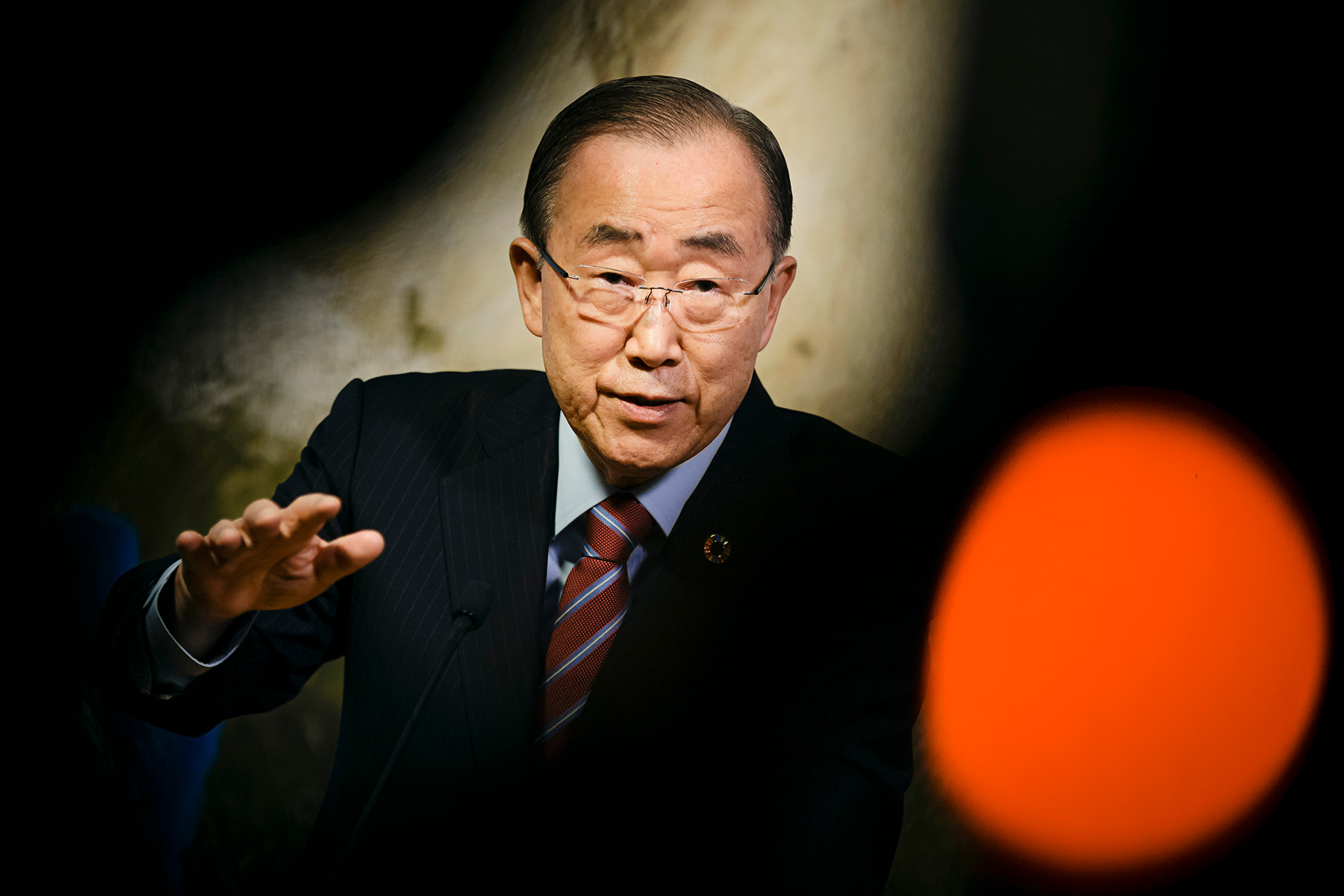There is no precedent in living memory for the challenge that COVID-19 now poses to world leaders.
The disease stands poised to cause a far-reaching economic depression and a tragically high number of deaths. Its impact will be felt in every corner of the world. To combat this historic threat, leaders must urgently put aside narrow nationalism and short-term, selfish considerations to work together in the common interest of all humanity.
As a former Secretary-General of the U.N., I support the call from my successor António Guterres for an additional $2 billion in humanitarian aid to tackle the pandemic. This aid—which will contribute to key efforts such as developing and distributing tests, treatments and vaccines—is essential to reducing the virus’s spread.
I also urge global leaders, led by the U.N., to consider how to develop a global governance system that can cope more effectively with any pandemics that may occur in the future. They should recommit to the values of the U.N. Charter, and use other multi-lateral bodies—including the G-20, the International Monetary Fund and the World Bank—to proactively support the world’s most vulnerable populations.
It is encouraging that G-20 leaders last month committed to implementing any necessary measures to stop the spread of the virus and to injecting $5 trillion into the global economy. But these commitments need to be translated into immediate, proactive assistance to vulnerable countries in Africa, South Asia and Southeast Asia. Further, to ensure an effective recovery, this cooperation will need to be strengthened and sustained for some time. It is also crucial that border restrictions and closures, as well as pre-existing sanctions for countries like Iran, which have been severely affected by the pandemic, do not prevent critical medical equipment and supplies from being transported to where they are most urgently needed.
COVID-19 shines a harsh light on the many profound inequalities that scar our planet. Disparities of wealth between and within countries now risk being exacerbated even further by the pandemic.
Similarly, the constraints many countries have imposed on movement and assembly are understandable and necessary under the current circumstances, but legislators and judiciaries must bear in mind that, if not carefully instituted, these restrictions risk accentuating the marginalization of vulnerable groups such as refugees, migrants and racial minorities.
Respect for human rights, solidarity and justice need to be at the heart of our response to COVID-19. We all have a responsibility as global citizens to stay vigilant and not allow authoritarian regimes to exploit the crisis to roll back rights and democratic safeguards. Otherwise, we risk the prospect of a future where rich countries have recovered and reinstate “normal” patterns of social and economic interaction, but poorer states remain ravaged, with their citizens excluded and subject to new forms of discrimination.
Even before COVID-19 took hold, we were confronted by the existential threats of climate change and nuclear weapons. In January, I attended the unveiling of the “Doomsday Clock” in Washington, D.C., when the clock’s minute hand was moved closer to midnight than ever before.
The clock is still ticking, and these threats have been further aggravated since the outbreak of COVID-19. But if the world can show the necessary courage and leadership today, we will be better placed to tackle equally grave challenges tomorrow.
Ban is the deputy chair of the Elders, an independent group of global leaders, and served as Secretary-General of the U.N. from 2007 to 2016
This article is part of a special series on how the coronavirus is changing our lives, with insights and advice from the TIME 100 community. Want more? Sign up for access to TIME 100 Talks, our virtual event series, featuring live conversations with influential newsmakers.
- Donald Trump Is TIME's 2024 Person of the Year
- Why We Chose Trump as Person of the Year
- Is Intermittent Fasting Good or Bad for You?
- The 100 Must-Read Books of 2024
- The 20 Best Christmas TV Episodes
- Column: If Optimism Feels Ridiculous Now, Try Hope
- The Future of Climate Action Is Trade Policy
- Merle Bombardieri Is Helping People Make the Baby Decision
